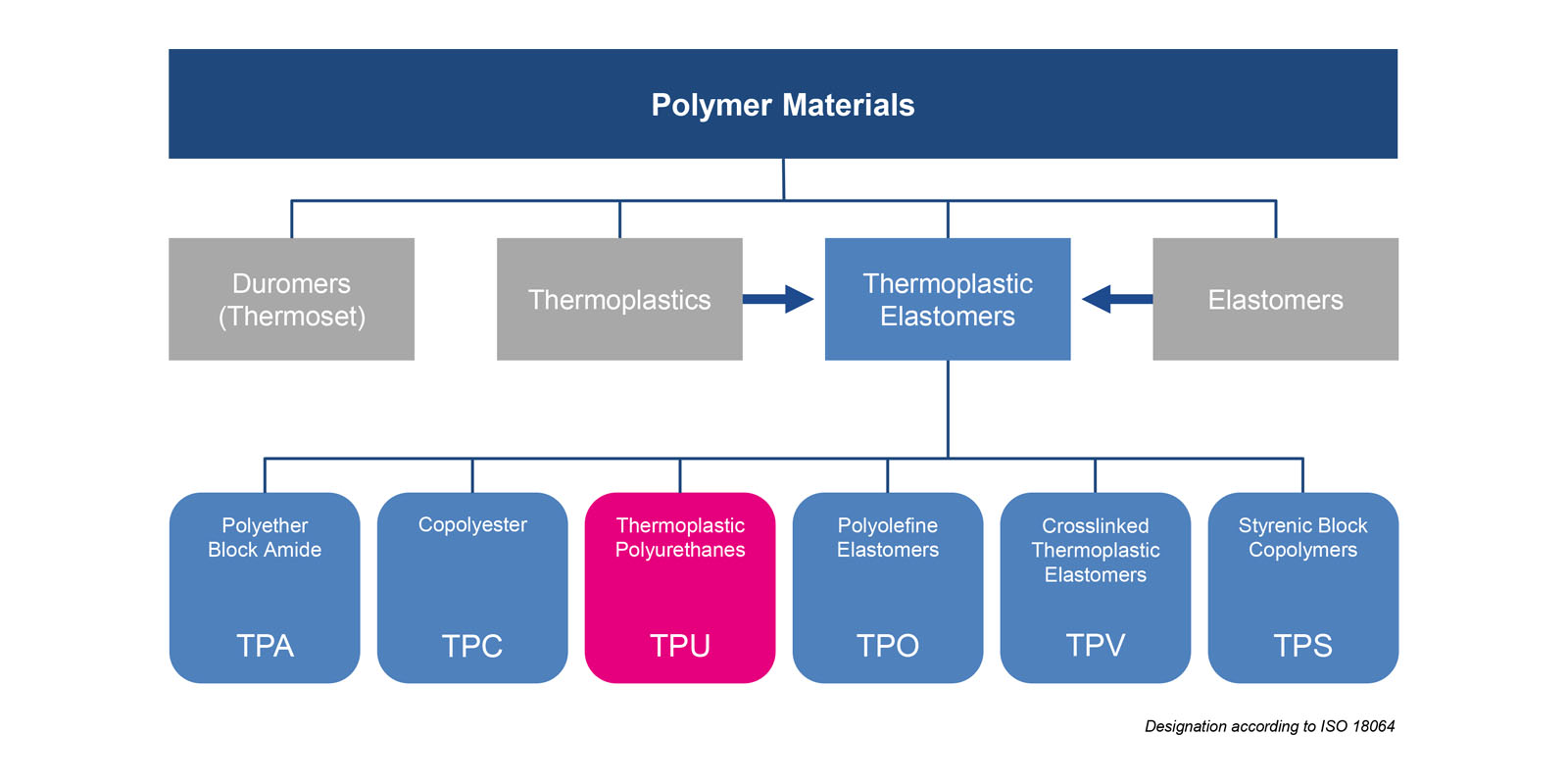I fatti più importanti in breve
- Thermoplastic polyurethanes, TPU for short, are generally polyadducts made from polyisocyanates and polyols.
- There are various ways to process the granules. The most commonly used methods include the injection molding and extrusion processes.
- TPU materials are characterized primarily by their high mechanical strength and very good abrasion resistance.
- The hardness grade of thermoplastic polyurethanes is usually between 60 Shore A and 80 Shore D.
What is Thermoplastic Polyurethane (TPU)?
Within thermoplastic elastomers, thermoplastic polyurethanes (TPU) form a subcategory. Thermoplastic polyurethanes, TPU for short, are generally polyadducts made from polyisocyanates and polyols.
Different material properties are usually adjusted during polymerization by combining different raw materials. In rare cases, subsequent compounding with various additives is also carried out.
How are TPU processed?
Thermoplastic elastomers are produced and delivered to the customer in pellet form. There are various ways to process the granules. The most commonly used methods include the injection molding and extrusion processes. However, thermoplastic elastomers can also be blow molded or processed using 3D printing.
What properties does a TPU material have?
TPU materials are characterized primarily by their high mechanical strength and very good abrasion resistance.
Plastics from the TPU class show good resistance to various non-polar chemicals. In contrast, there is a certain sensitivity of the materials with regard to material degradation in contact with water and aqueous solutions, especially at high temperatures. To avoid material damage, it is therefore essential to dry TPU compounds before processing. This also supports the processability of the materials.
Depending on the manufacturer, TPUs are also produced for the consumer market. The materials can be colored, and some manufacturers also offer translucent TPU.
- Abrasion resistance
- Mechanical strenght
- Low temperature flexibility
- Heat aging
- Resistance to various non-polar chemicals
- Injectability
Find the the right TPE solution for your application
Making sure you get the best results: the right materials solutions have been developed for each of your specific applications.
Are TPU hard or soft?
The hardness grade of thermoplastic polyurethanes is usually between 60 Shore A and 80 Shore D. Compared to typical TPS products, TPU materials are significantly harder and rarely compete with each other directly.
Does KRAIBURG TPE produce TPU?
KRAIBURG TPE does not manufacture TPU itself and does not sell these plastics. However, various TPU are used as property brokers and modifiers in styrene-based thermoplastic elastomers from KRAIBURG TPE.








